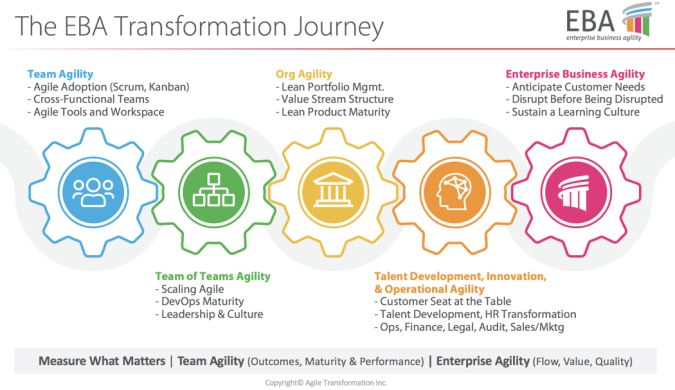 Renee and Craig are at Agile 2019 in Washington, DC and talk to Gil Broza, Agile Mindset and Leadership Coach / Trainer at 3P Vantage and author of “The Agile Mind-Set“, “The Human Side of Agile” and “Agile for Non-Software Teams” and they talk about:
Renee and Craig are at Agile 2019 in Washington, DC and talk to Gil Broza, Agile Mindset and Leadership Coach / Trainer at 3P Vantage and author of “The Agile Mind-Set“, “The Human Side of Agile” and “Agile for Non-Software Teams” and they talk about:
- Agile 2019 talk – “How to Help your Non-Software Colleagues Adopt Agile“
- Outside of software, they notice Agile and want what they have – a different team experience and doing things better
- Focus on a principle based transformation rather than practices – have conversations early and often on how we want to be and how we want to operate
- The Agile Manifesto principles are partial and software heavy, the values and beliefs are the root and leadership should keep these alive
- 26 principles in “The Agile Mind-Set” book and includes transparency (which is harder in areas…
View original post 200 more words









You must be logged in to post a comment.